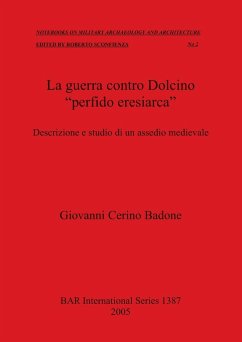
Estabilidad y conflicto civil en la guerra del Peloponeso
Las sociedades corintia y argiva
Versandkostenfrei!
Versandfertig in 1-2 Wochen
61,99 €
inkl. MwSt.

PAYBACK Punkte
31 °P sammeln!
The Peloponnesian War shows important differences compared with previous warfare since its campaigns are no longer seasonal affairs, meaning that the hoplites-landowners must leave their land and other activities. As a consequence, their presence becomes scarce as far as the cities' political life is concerned, and this will slowly open an ever deeper gulf between politics and military men. This book looks at how the phenomena and features just mentioned took shape and developed. But within the overall frame of the Peloponnesian War, particular attention is paid to the Corinthian and Argive so...
The Peloponnesian War shows important differences compared with previous warfare since its campaigns are no longer seasonal affairs, meaning that the hoplites-landowners must leave their land and other activities. As a consequence, their presence becomes scarce as far as the cities' political life is concerned, and this will slowly open an ever deeper gulf between politics and military men. This book looks at how the phenomena and features just mentioned took shape and developed. But within the overall frame of the Peloponnesian War, particular attention is paid to the Corinthian and Argive societies, that lived through it and suffered in very different ways. Both these states are highly significant within the Hellenic world. Their importance however has been outshined by the two great hegemones of the classical period, Athens and Sparta. The conclusion is that the Corinthian society, less complex but more coherent than Athenian, enjoyed a remarkable balance among its layers: to the absence of military and social privileged elites, the existence of what nowadays we would call a significant middle class must be added; and the fact that the needs of the plethos were acknowledged by the oligarchic group in power. The Corinthian social maturity made it possible that the dominant class absorbed and channeled the fissures of its civic body in favor of the common goal of asserting themselves over Athens. On the contrary, the Argive society showed less articulation and consistency than the Corinthian's, the consequence mostly of the traumatic reconstruction of the civic body in the first third of the fifth century, based on the integration of dependants and non-Argive free population.












